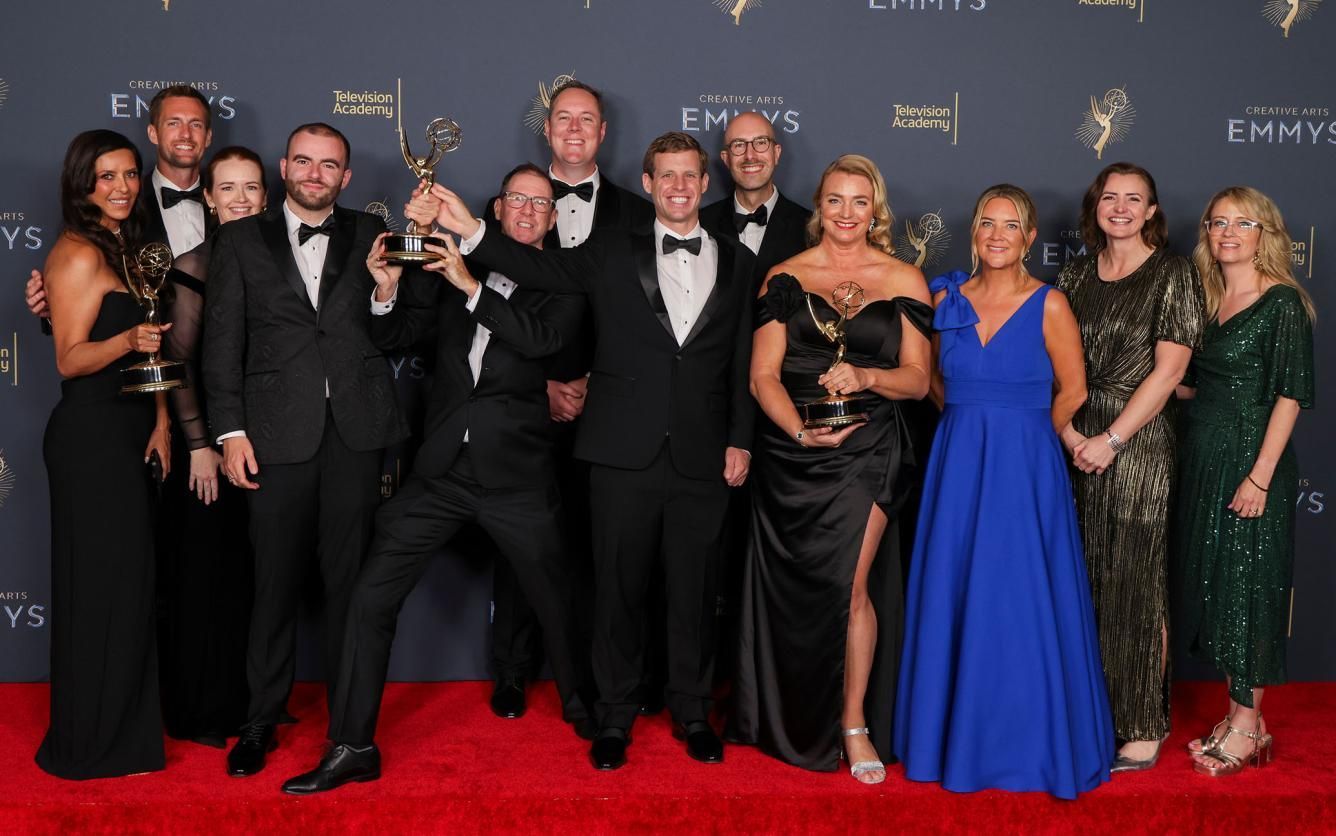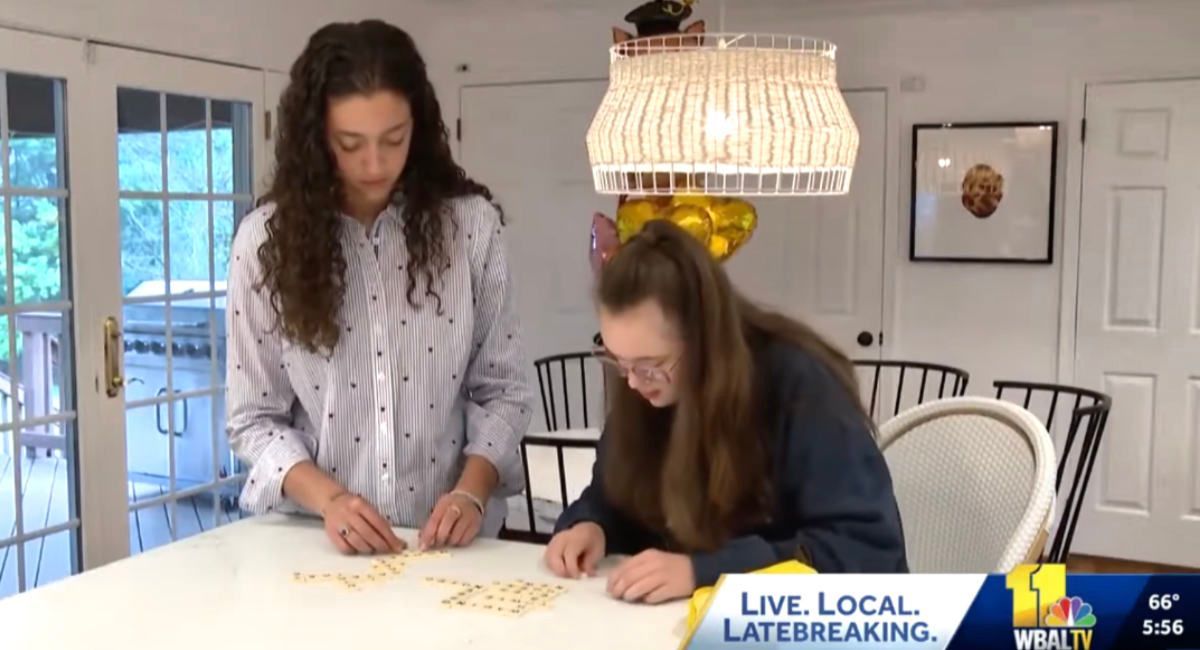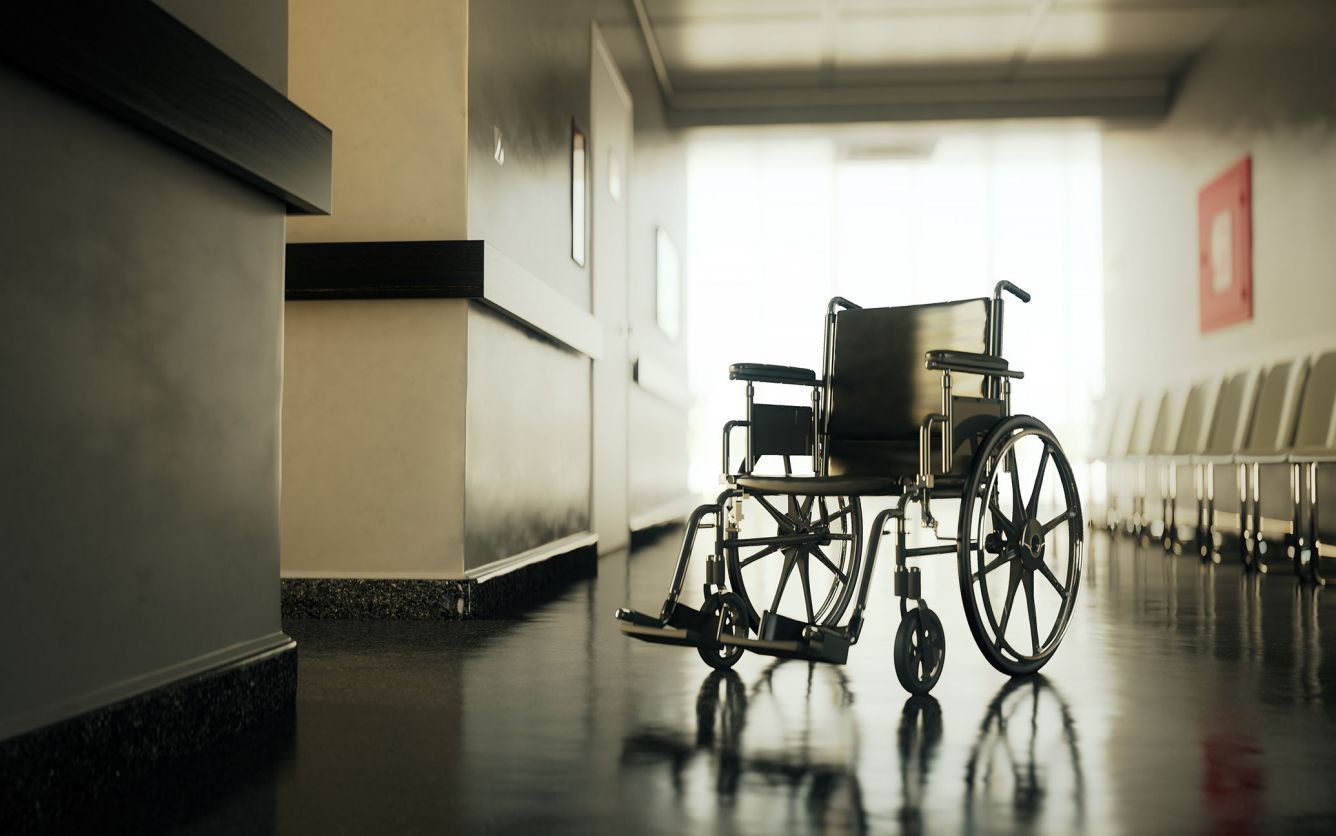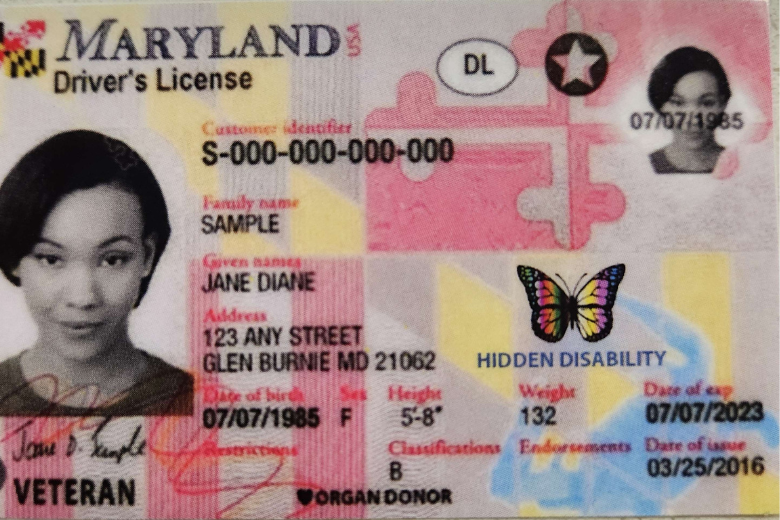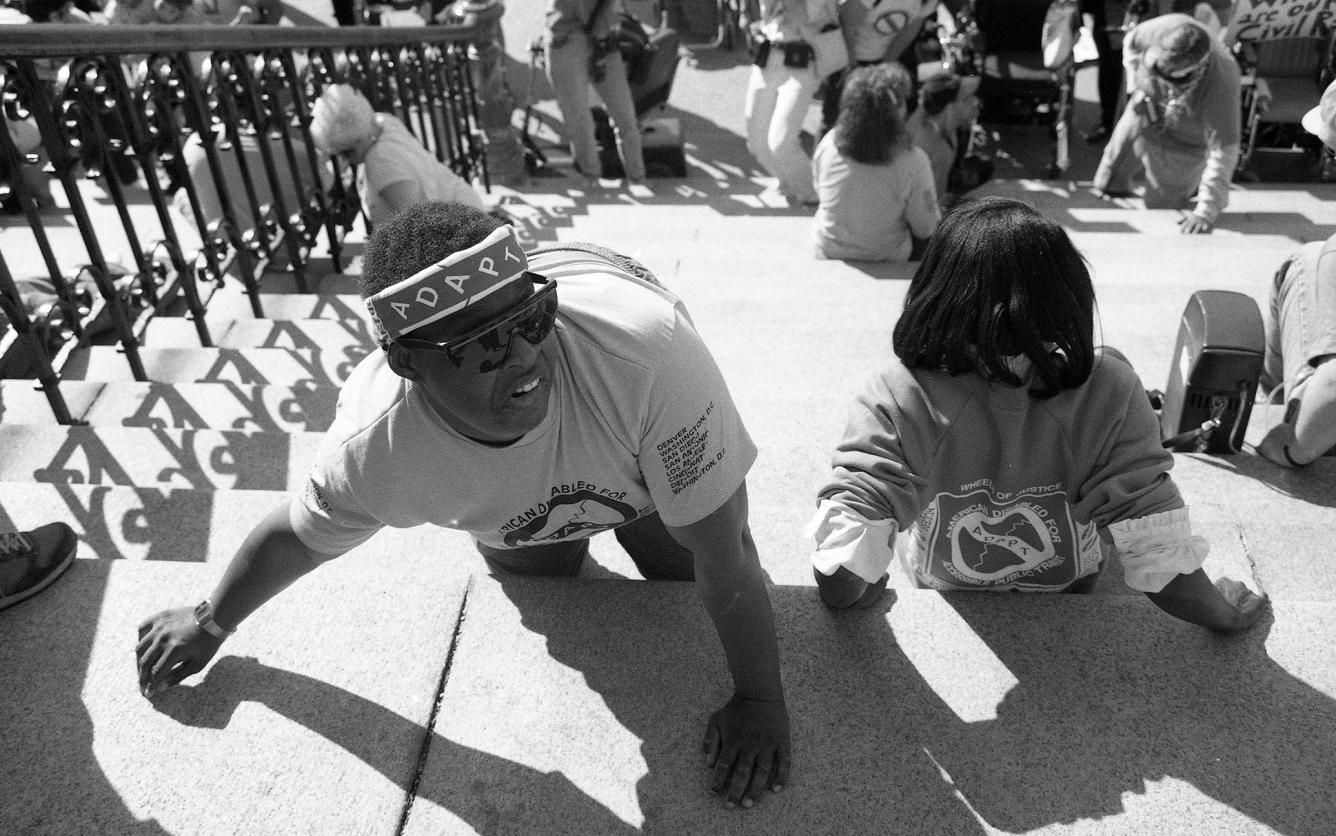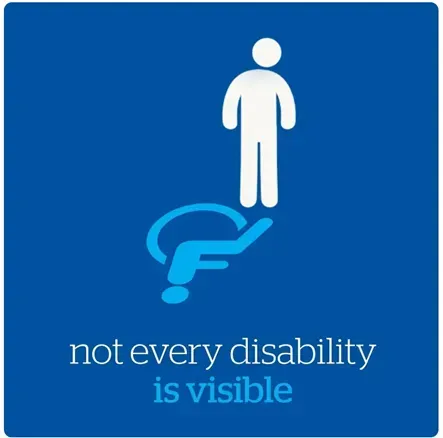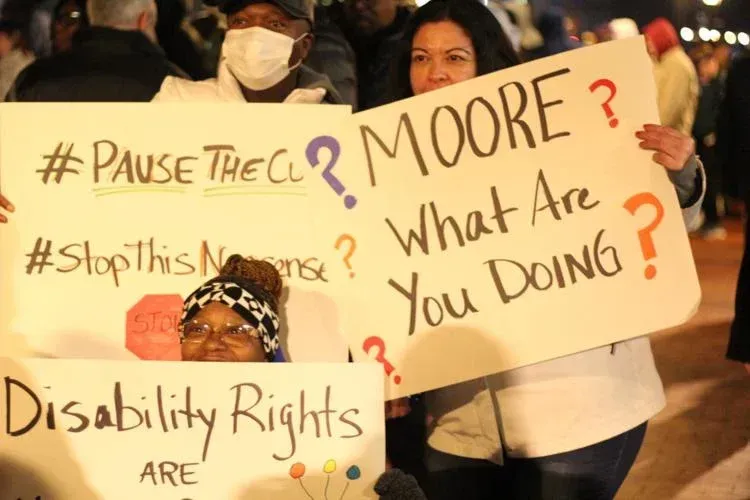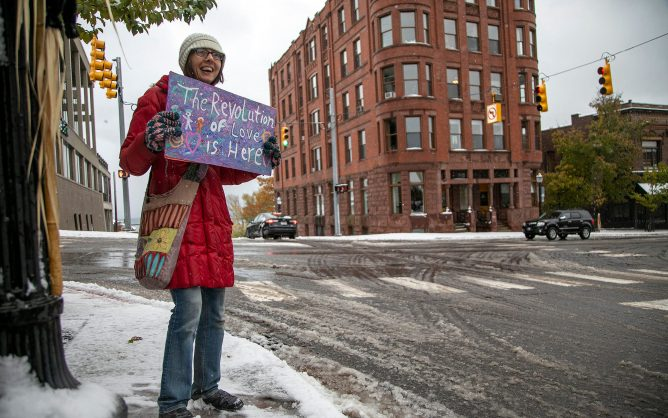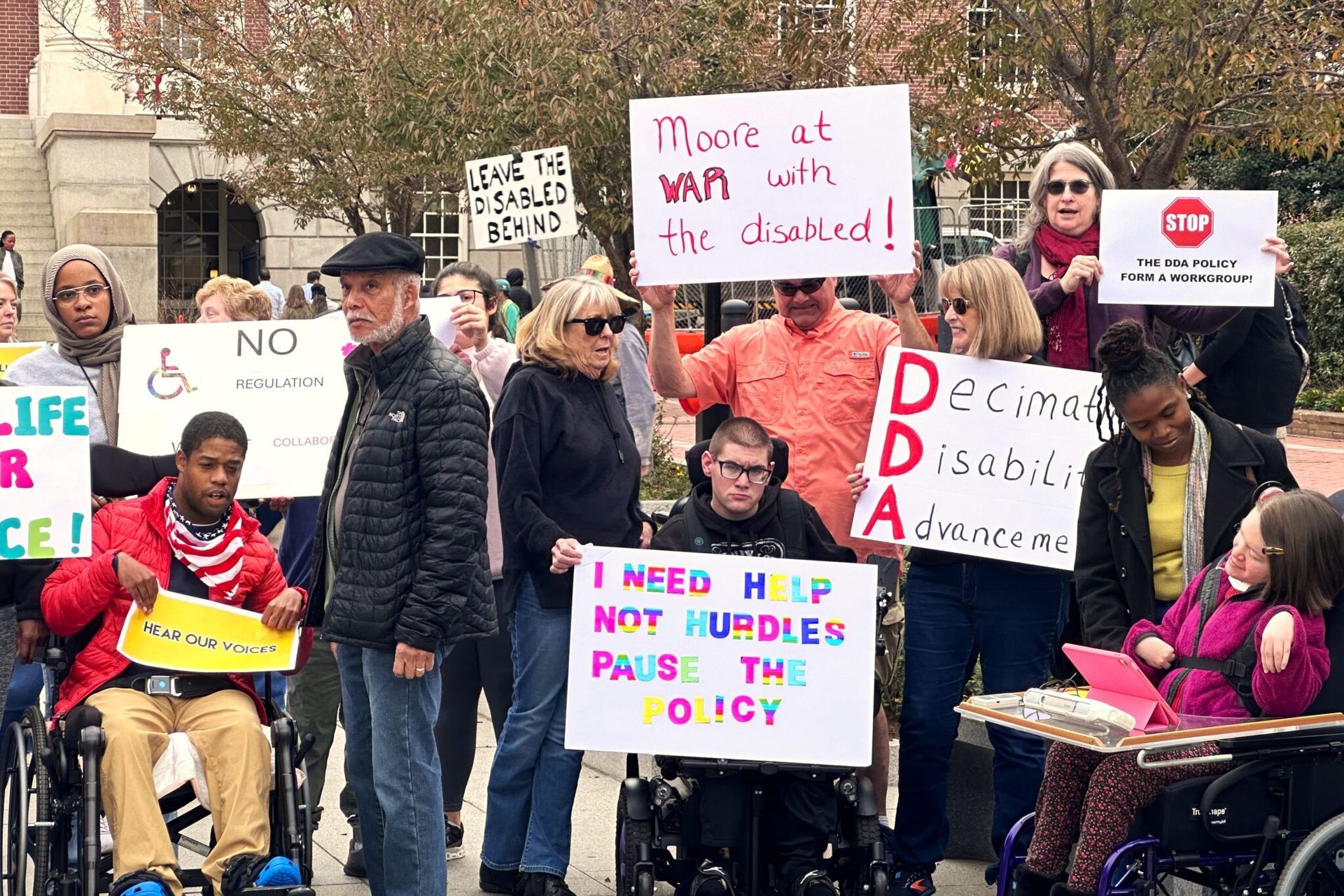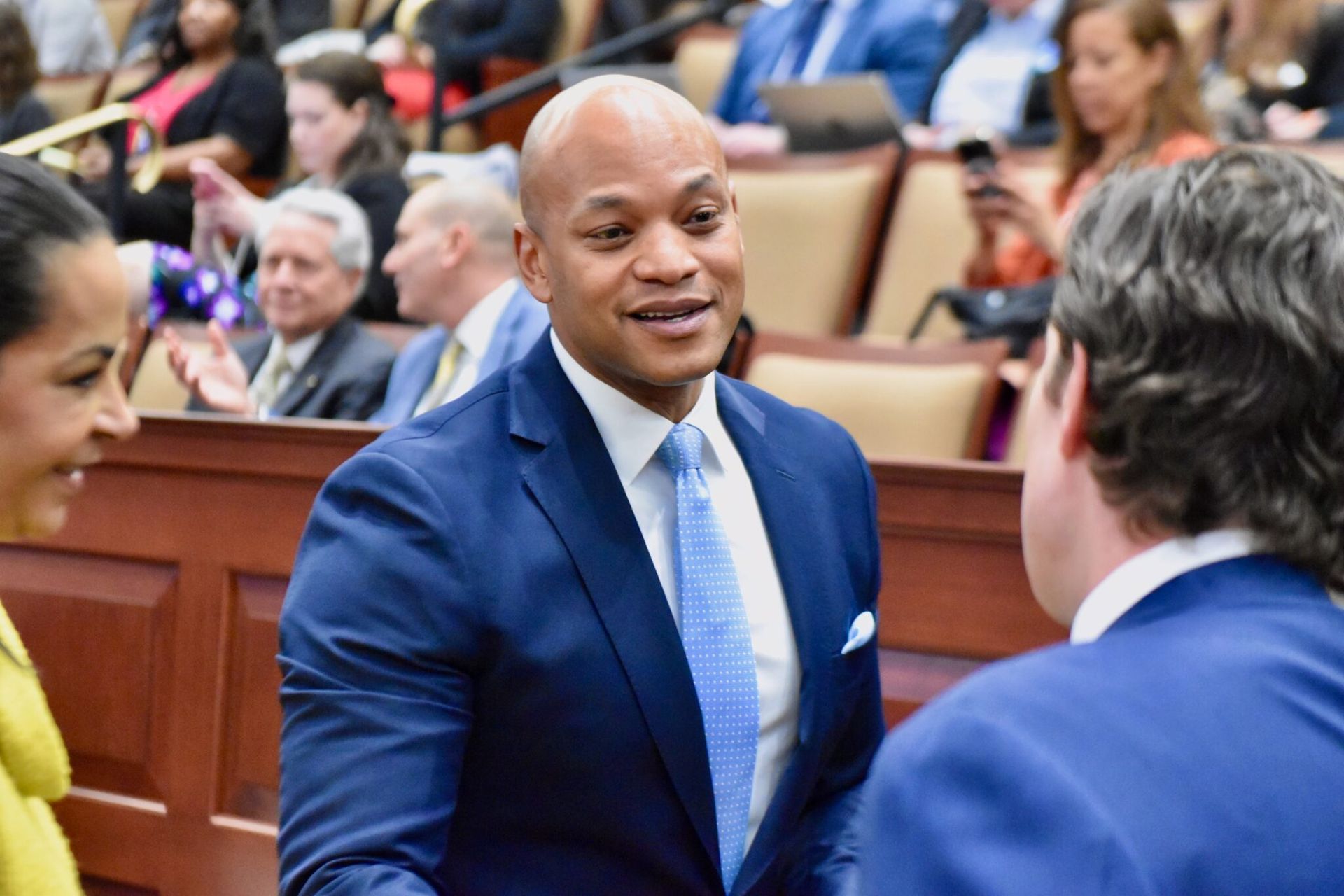Autistic woman brings unusual message to the streets Up North
When 2020 became too awful to take, an autistic woman brought a message to the streets. And few people had seen anything like it before.
MARQUETTE, Mich. — The drivers going past had seen people holding homemade signs and standing on street corners before. But they’d probably never seen a sign like this.
It was a cold October morning, harsh even for the Upper Peninsula. A woman in a Chevy was stopped at a red light. She looked over to her left and saw Sarah Still, standing on the snowy sidewalk, her thin frame shivering visibly as she held a colorful, hand-painted sign. The driver squinted to read what it said. Then she smiled at Still and gave her a thumbs-up. And Still waved merrily back.
A burly, bearded man in a Ford F150 slowed his truck to a crawl, read the sign and honked his horn twice in acknowledgment. Still beamed at him.
Another driver slowed, then stopped his car so his passenger could take a photo of the young woman and her sign. Still held it higher for the two of them, and she burst into a toothy grin.
She wasn’t protesting, or asking for money, or trying to encourage anyone to do anything. She just wanted to make an announcement.
“The Revolution of Love is Here,” her sign declared.
Still is as unique as her sign. She’s an outgoing mix of awkward and earnest. She often giggles mid-sentence for unobvious reasons. She peers out at the world endearingly through thick glasses. And she has autism.
“I’ve always been so sensitive,” said the 38-year-old. “I can hear things like thousands of miles away it feels like. And when I feel pain I feel it a hundred million times more than other people.”
So when the animosity and conflict and stress of 2020 finally became too much to take, she painted some signs on pieces of thin poster board, left the warmth of her cozy apartment and began standing on street corners, offering her messages.
Another car stopped as the stoplight turned red again. The driver, half asleep in the routine of her commute, glanced lazily at the sign, whose message was fringed with cartoonish smiley faces and little hearts and rainbow colors, and she broke into a genuine, spontaneous smile. Once again, Still’s mission was accomplished.
“That’s the whole point, is to help people smile, ’cause this world is so crazy and there’s way too much hatred in this world, and people forget just how to be,” she said.
“So it’s pretty good. It means I’m making a difference.”
Still grew up in Davison, a small town near Flint. She was always intelligent and artistic, her mom says. And she was always different.
“She’s very unique, very eclectic,” said Karen Lalonde, 64. “She’s one of the most resilient people that I know of. Having autism has knocked her down a lot, and she just keeps getting back up, and is willing to try anything. She’s forged this independent lifestyle. She still needs support, but she’s living on her own and spreading love around the world.”
Still lives on an upper floor of a high-rise, rent-subsidized apartment complex just outside of downtown Marquette, close to the university campus, not far from the corners where she stands. She followed a friend to Marquette a year ago and fell in love with the artistic atmosphere and the lush nature around her.
But despite her exuberance, finding happiness has been a challenge all her life.
“She still has a lot of anxiety and depression,” said her mom. “It flips really fast. She’s happy-go-lucky until something happens. And then she shuts down.”
Still talks about openly it.
“I have a disability, a form of autism,” she said. “Sometimes it’s a struggle and sometimes it’s not. It kind of comes and goes. But, I mean, it’s like a gift to me, too. They say we are dialed into a different dimension.” And that dimension has always provided her with a peaceful refuge from an often mean-spirited and tough-going world.
Her tiny apartment is an outward projection of that inner life. The walls are covered in her paintings, her poems, little notes she’s written to herself. Her creative style is simple, childlike, innocent, with a hint of mysticism. One painting showed friendly ghosts smiling next to pumpkins. An owl made of felt declares in painted letters that it’s happy. A three-tier display at the foot of her bed features figurines of grinning gnomes and heavenly angels and little forest animals arranged on a soft bed of flowers and moss, sharing their world unselfishly. And right by her bed is a note she wrote to herself, taped to the wall. “Sarah, you are a warrior of light, love and miracles,” it says. “Never give up.”
“Sarah’s the kindest person you’ll ever meet,” said friend Ronnie Ferguson, 39. “She just has a really big heart. She really cares about people and she cares about the state of the world. She’s all about peace and love and trying to do her part. I think she’s great.”
Still went to college for a little while, but she never finished. She’s held jobs here and there, but she finds it hard to work. She gets by mostly on a very small disability income. Sometimes she volunteers.
“She’s struggled her whole life to find a job and hold a job just because of her quirkiness,” her mom said. “She takes twice as long to do something as someone else. She learns something over and over, but it’s brand new every day, so she’s got other issues besides her autism that make it difficult for her to hold a job.”
Instead, she’s made spreading happiness her full-time occupation. She’s been coming to downtown Marquette with her signs up to three times a day since summer, spreading the word about the love and happiness she insists is the true spiritual reality that lies just beneath the surface of the everyday world.
Her mom worries that her openness and friendliness leaves her vulnerable. “I’m a little concerned,” she admitted. “I said ‘If somebody calls you into their car, don’t go. If you feel threatened, go inside a store that’s got lots of people there.’ We’ve talked numerous times. I just caution her as a mother, just to have her beware.”
Others have expressed similar concerns to her, too. “Most people think I’m, like, crazy,” Still said, giggling. “I get really adamant ’cause I know a lot of things, and then sometimes I feel that they try to say that I don’t know how the world works, and that I’m naïve.”
She was sitting on a chair in her living room, where all around her were paintings and drawings she made of smiling turtles and friendly butterflies and rainbow bubbles and vivid balloons.
“But I know that there’s a reason why I’m doing this,” she added. “You know, I really feel that I’m being called to do more of the arts and more of the spread the love, because we really need it right now.”
The next afternoon she was outside with her signs again, dressed in a rainbow of flannels and knits, standing at the bottom of a downtown hill where cars stop at a traffic light. It was snowing hard. She shivered as much as ever. Her teeth chattered. This time, her sign was different. “Sending Love and Miracles” it announced.
The few drivers on the streets were trying not to slide off the slippery roads, and many didn’t even see her through the thick cloud of snowflakes. Those who did smiled as usual. Some waved. A couple of them honked.
As she stood there, she bobbed, she swayed, she tapped her foot to a beat that only she could hear.
“She’s been that way for years and years,” said longtime friend Holly Lake, 71, of Lapeer. “One of the reasons she does the signs is to wake people up and enlighten them and let them know there’s a better way for everything, and we need to unite. She’s very concerned about everyone’s welfare and she just wants happiness.”
A man and woman walking down the snowy, deserted sidewalk saw her standing before them. The man read the sign, outstretched his arms as if to hug her, and began singing the lyrics to “All You Need Is Love,” by the Beatles as he approached. Of course, the gesture just made Still explode into another pure, unrestrained smile.
Above her, the sky was a wash of thick, gray clouds. The snow cascaded down and the winds blew the flurries nearly sideways. Almost nobody else was outside. The day couldn’t have been more dreary. Still looked up at a faint, blurry glow just behind the gloomy canopy.
“I think,” she said, “that the sun is trying to peek through.”
